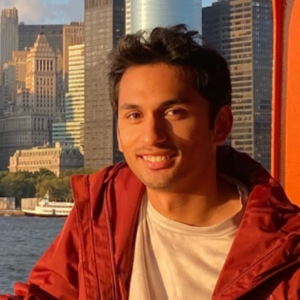 Zaid Tasneem is a Researcher in the Media Analytics Department at NEC Laboratories America in San Jose, CA. He received his PhD in Electrical and Computer Engineering from Rice University, his MS in Electrical and Computer Engineering from the University of Florida, and his B.Tech. in Mechanical Engineering from the Indian Institute of Technology, Kanpur.
Zaid Tasneem is a Researcher in the Media Analytics Department at NEC Laboratories America in San Jose, CA. He received his PhD in Electrical and Computer Engineering from Rice University, his MS in Electrical and Computer Engineering from the University of Florida, and his B.Tech. in Mechanical Engineering from the Indian Institute of Technology, Kanpur.
Dr. Tasneem’s academic training spans computational imaging, neural rendering, privacy-enhancing technologies, and decentralized learning frameworks. This multidisciplinary foundation enables him to tackle core challenges in machine perception, multimodal reasoning, and privacy-aware AI. At NEC, his research focuses on developing agentic simulation frameworks and generative modeling techniques for autonomous driving. His work advances the creation of language-controllable, realistic, and scalable simulations that capture rare and safety-critical events, empowering autonomous systems to learn and adapt in complex real-world environments.
Through these efforts, Dr. Tasneem contributes to NEC’s next-generation media intelligence and autonomy platforms, with applications in simulation, privacy-aware monitoring, and robust multimodal reasoning. His research aims to bridge the gap between large-scale data generation and the reliable deployment of AI, helping to address some of the most pressing challenges in safety, privacy, and trustworthy machine intelligence.
Posts
With over a billion sold each year, cameras are not only becoming ubiquitous, but are driving progress in a wide range of domains such as mixed reality, robotics, and more. However, severe concerns regarding the privacy implications of camera-based solutions currently limit the range of environments where cameras can be deployed. The key question we address is: Can cameras be enhanced with a scalable solution to preserve users’ privacy without degrading their machine intelligence capabilities? Our solution is a novel end-to-end adversarial learning pipeline in which a phase mask placed at the aperture plane of a camera is jointly optimized with respect to privacy and utility objectives. We conduct an extensive design space analysis to determine operating points with desirable privacy-utility tradeoffs that are also amenable to sensor fabrication and real-world constraints. We demonstrate the first working prototype that enables passive depth estimation while inhibiting face identification.


